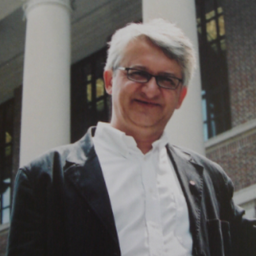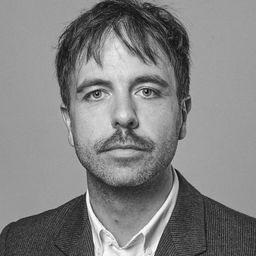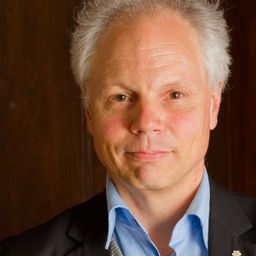
Laurier Turgeon
Directeur du Laboratoire d'enquête ethnologique et multimédia (LEEM)
Laurier Turgeon est titulaire de la Chaire de recherche du Canada en patrimoine ethnologique et professeur d’ethnologie et d’histoire à l’Université Laval, Québec, Canada. Il est membre de la Commission canadienne pour l’UNESCO et a été chercheur invité au Media Lab du MIT (Massachussetts Institute of Technology) pour mener des recherches sur les narrations transmédia dans le domaine du patrimoine. Il a occupé en 2006 la Chaire d’études canadiennes au Weatherhead Center for International Affairs à Harvard University où il a dirigé un séminaire sur les enjeux politiques et sociaux du patrimoine culturel immatériel. Il a été directeur de l’Institut du patrimoine culturel (2005-2012), directeur du Centre de recherche interuniversitaire CELAT (1994-2000), Centre d'études sur les lettres, les arts et les traditions et dirige le Laboratoire d’enquête ethnologique et multimédia. Régulièrement invité dans les universités canadiennes et étrangères pour y animer des séminaires sur le patrimoine (Université Paris I Panthéon Sorbonne, Ecole des hautes études en sciences sociales de Paris, Université Senghor d’Alexandrie, Université de Budapest, Université d’Etat d’Haïti etc.), il est l’auteur d’une centaine d’articles et d’une dizaine d’ouvrages. Rédacteur en chef de la revue Ethnologies, il co-dirige également avec Yves Bergeron (UQAM) une encyclopédie multimédia en ligne, l’Encyclopédie du patrimoine culturel de l’Amérique française(www.ameriquefrancaise.org). Il a réalisé trois Inventaires multimédias en ligne du patrimoine immatériel, en partenariat avec le Ministère de la Culture du Québec, le Ministère des Affaires municipales et de l'Occupation du territoire, et avec le soutien de la Très honorable Michaëlle Jean (www.ipir.ulaval.ca, www.irepi.ulaval.ca, www.ipimh.ulaval.ca). Dernièrement, il a réalisé entre autres l'exposition "Manger Ensemble" avec le Musée de la civilisation de Québec, sur le patrimoine alimentaire du Québec, et une application mobile du patrimoine matériel et immatériel de la ville de Québec, Découvrir Québec, pour laquelle il a obtenu deux prix : The Summit International Awards for Creative Media—Visionnary Award Category (2014) et le Prix de l’Office de la langue française du Québec dans la catégorie « Solutions mobiles » (2014). Sa contribution à l'ethnologie a été récompensée par plusieurs prix, dont le prix Marius Barbeau décerné en mai 2016.
Sessions in which Laurier Turgeon participates
Saturday 4 June, 2016
Tuesday 7 June, 2016
Sessions in which Laurier Turgeon attends
Friday 3 June, 2016
Qu’est-ce que le patrimoine change à Montréal? Qu’est-ce que Montréal change au patrimoine? Ce débat vise à mettre en discussion l'évolution et le devenir du patrimoine dans la métropole du Québec en interrogeant les motifs de l'attachement (ou de l'indifférence) de la société civile et des décideurs, mais aussi en questionnant les moyens dont ils disposent pour agir sur le patrimoine. Au-delà de la fameuse "pierre grise" et des matériaux expressifs de l'identité historique de Montré...
Saturday 4 June, 2016
What if we changed our views on heritage? And if heritage has already changed? While, on the global scene, states maintain their leading role in the mobilization of social and territorial histories, on the local scale, regions, neighbourhoods and parishes have changed. Citizens and communities too: they latch on to heritage to express an unprecedented range of belongings that no law seems to be able to take measures to contain, often to the discontent of...
Most of what we experience as heritage emerges into conscious recognition through a complex mixture of political and ideological filters, including nationalism. In these processes, through a variety of devices (museums, scholarly research, consumer reproduction, etc.), dualistic classifications articulate a powerful hierarchy of value and significance. In particular, the tangible-intangible pair, given legitimacy by such international bodies as UNESCO, reproduces a selective ordering of cul...
Sunday 5 June, 2016
"What does heritage change?" is a multifaceted question to which the answer(s) are in primary respects related to real-life negotiations among different groups of citizens, cultures, races, ethnic groups, sexual identities, and social classes about received, official and/or widely accepted or accomodated intangible attributes, cultural traditions, historic monuments, buildings, and other transmitted or revived historical legacies. Heritage designated by and for whom, for what motivations, an...
Directed by Tom Fassaert and presented by Marc Jacobs. ___ Doel, a Belgian village near the Dutch border, is disappearing quickly and deliberately. Not because of the four old nuclear reactors on its territory, but because the Flemish government decided that the village might block projects for new docks for the Antwerp harbour, plans developed since the 1960s. In the 21st century this process of officially encouraged depopulation is coming to an end: 2500 inhabitants i...
Monday 6 June, 2016
Space plays a crucial role in the production and meaning-making of cultural heritage. Although space has often been discussed in heritage studies, further critical analysis of the constructive and performative nature of space, in particular that of scale and territoriality, is needed in order to understand the power hierarchies and mechanisms of power in cultural heritage and in various conflicts related to its meanings, ownership, preservation and management. The idea of cultural herit...
In addressing the theme of this conference, we argue that archaeology, above and beyond the traditional goals of research and post-excavation analyses, may contribute to economic development, education and the creation of identities and communities. Our session "What does Heritage Change? Case Studies in Archaeology," is divided into two themes starting with archaeological practice through its legislation and management. Contract or commercial archaeology increasingly comprises the vast major...
This session will address the potential and limitations of heritage as a tool for leverage, empowerment and dissent in Africa. It is widely acknowledged that heritage—the selective valuation and use of the past in the present—can be an oppressive. Heritage work in Africa has even been characterized as "an instrument for dictatorship" (Peterson et al. 2015:28) because it is often implicated in upholding particular narratives and political orders, imposing a singular vision onto a heterog...
To celebrate our film series dedicated to heritage, sponsored by the Department of American Studies at the University of Maryland and the United States Chapter of the Association of Critical Heritage Studies, this event will spotlight the iconic Sugar Shack, which is rooted from Quebec to New-England and which is both the place of maple syrup production and of friendly gatherings during the maple syrup season. In a festive atmosphere, delegates will be invited to taste one of the essential of...
Tuesday 7 June, 2016
The second half of the 20th century saw the affirmation of national and international heritage administrations run by teams of experts that mutually validated each other’s knowledge and findings. The emergence of new forms of heritage, new collections and international networks related to museums, or other heritage structures, has led to the development of numerous new or reformulated specialities. In the last two decades a new ideal of heritage has gained ground, one based on communities ...









